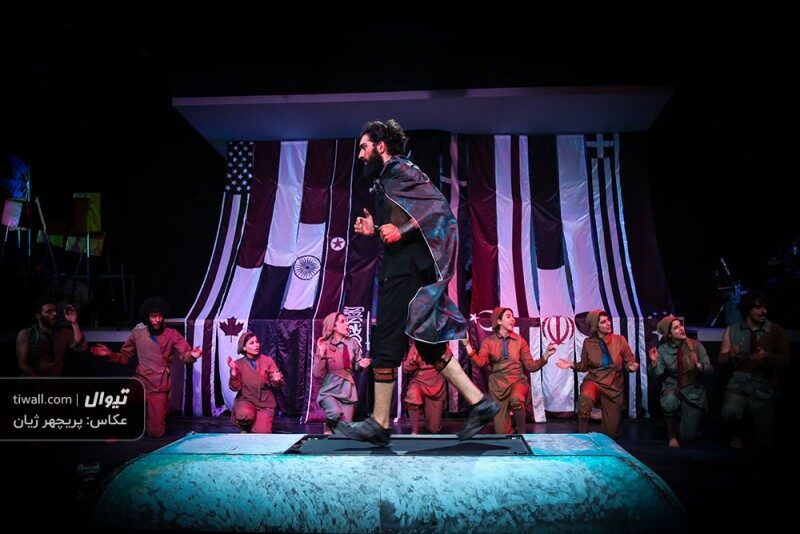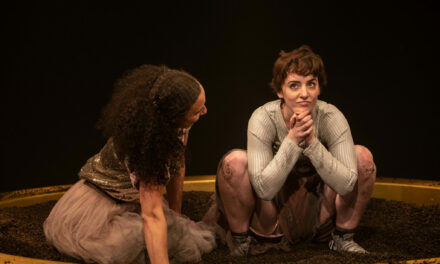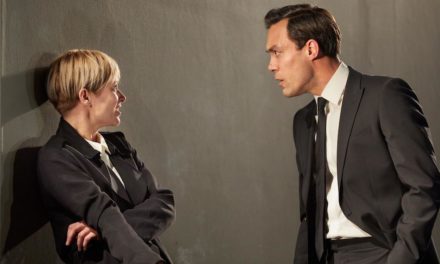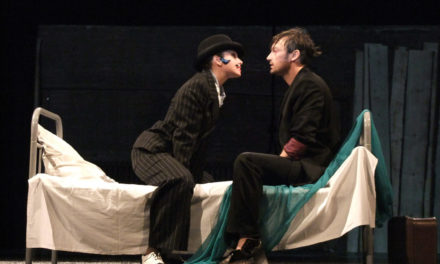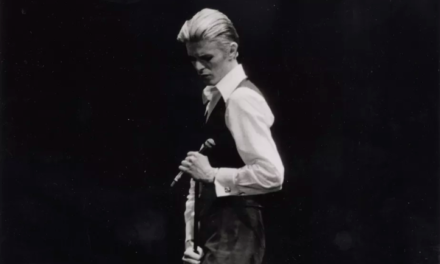A Review on Iranian Adaptation of Coriolanus in Tehran
A free adaptation of William Shakespeare’s tragedy Coriolanus was on stage at Tehran Independent Theater in August 2019 for a month.
The play was directed by distinguished writer and director Mostafa Koushki, who has a long history of adapting Shakespeare plays with his distinct, experimental style. The successful actor and director founded and manages the privately-owned, Independent Theater that also runs acting workshops. The current show was the result of his students’ year of training.
The play dramatizes the story of the courageous Roman general, Caius Martius Coriolanus, who is a military genius but a weak political figure. Not being suited for the popular vote and quickly deposed, he aligns with his enemy in order to invade his homeland.
The play’s performance is a take on current populism movements that are occurring across the world; hence, all the production elements are contemporary. The dialogue is re-written to signify the vulgarity of political clashes. Shakespeare’s poetry has been turned into short, simplified, and sharp words to convey the superficiality of populism. In this version, the role of Coriolanus’ friend and supporter Menenius was cut, while the people of Rome mostly delivered slogan-based dialogue.
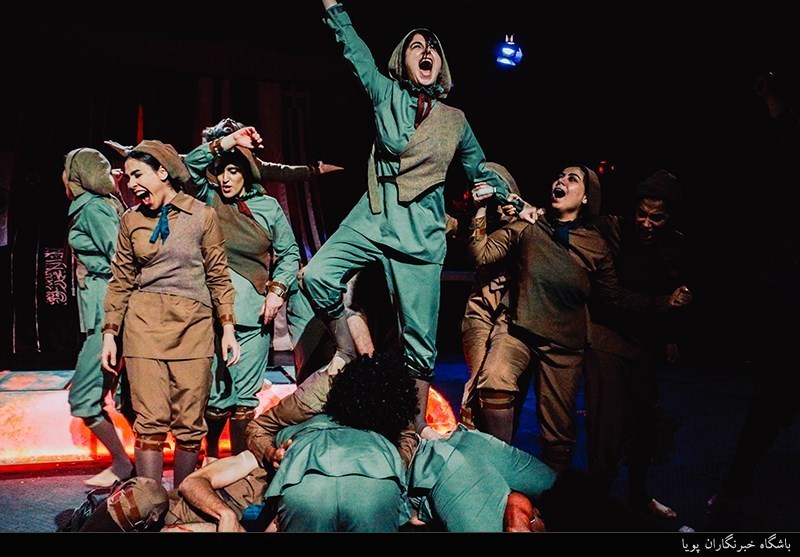
Romans cheers for the downfall of Coriolanus– Photo retrieved from TASNIM.
Koushki’s avant-garde set design is reminiscent of the never-ending, chaotic events that are always feeding populism. The hanging flags of Iran, Saudi Arabia, the US, North Korea, India, Turkey, and Canada symbolize this phenomenon’s presence around the globe.
The character of Coriolanus runs on a treadmill throughout most of the play, in a strong performance by actor Imān Abdī. He participates in a political marathon, fighting a frenzied, popularity contest that is overshadowed by media and dominant politicians.
The play mostly focuses on public opinion, which can be easily changed by poverty or boredom. The director uses familiar elements from media, such as the sound of a BBC newsreel or loud, populist slogans to showcase how the play is relevant today.
The focus of this adaptation is not on Coriolanus’ revenge, but on the role, people and society have in shaping common dominators by deception. The portrayal of society in this performance is closer to a comedy than a serious tragedy; the director paints an absurd image of the masses. Further, the roles of Coriolanus’ mother and wife are minuscule compared to Shakespeare’s play.
This new approach is accompanied by an exquisite music performance from the talented musician Aliīsīnā Rezānīā, who singlehandedly plays multiple instruments and creates a tune to accompany various scenes in the play. The artist also shines in Shakespeare’s A Midsummer Night Dream, another production by Koushki that was simultaneously being re-run for the third time at Tehran Independent Theater, due to its previous successes. This production has also been performed at Gyula Shakespeare Festival in Hungary.
A Midsummer Night Dream has stayed very much devoted to Shakespeare’s language and themes, while the music, set design, makeup, and movement created a true world of fantasy, from playful Puck to the illustrious fairy queen Tatiana. While the play’s set was minimal, the cast and harmonious musical score resonated with the festive spirit of the fairies’ enchanted world. The elfish fairies were creatures from another realm that pushed themselves on humans and created awkward situations with excellent comedic timing. This playful blend was performed with a good pace and kept the audience interested and anticipating more.
So while two Shakespearean plays were being performed by one of Tehran’s private sector theater companies, the director’s experimental approach in Coriolanus indicates theaters can make unconventional performances for mainstream audiences. A Midsummer Night Dream is completely loyal to the text but with a modern touch, while the other is focusing on the ideology of a classical play. Progressive performances of classics are becoming more common in Tehran, showing that implementing certain formulas can work and even be successful at the box office.
There are a few people in Iranian theater who are really leaving their mark on the field of experimental and physical theater, and Koushki’s Coriolanus tries to follow this trend. Although his version has ignored the traditional and iconic script, he displayed contemporary takes that relate to the modern audience and current, daily events.
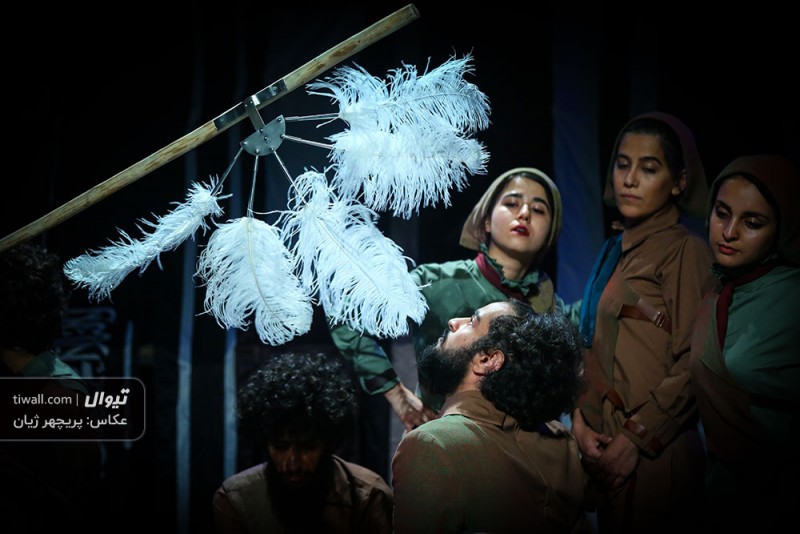
Banished from Rome, Coriolanus goes into a self-discovering run. Photo by Parichehr Zhian. tiwall.com
This post was written by the author in their personal capacity.The opinions expressed in this article are the author’s own and do not reflect the view of The Theatre Times, their staff or collaborators.
This post was written by Niloofar Mohtadi.
The views expressed here belong to the author and do not necessarily reflect our views and opinions.

